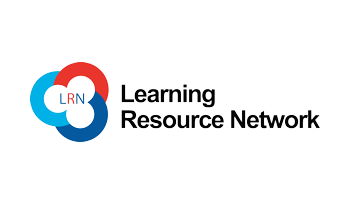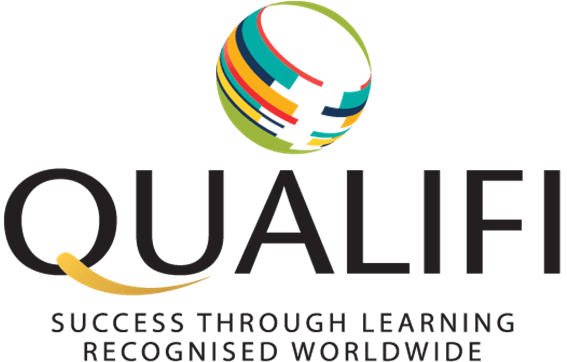0
licensing institutions as of 2017/2018
0
number of programs as of 2017/2018
0
Number of qualifications issued as of 2017/2018
0
Program Provider
Advantage of Level qualification in UK
National qualifications frameworks
Level UK system is one of the national training systems of the UK. Level UK implements the Regulated Qualification Framework (RQF), which is accredited and recognized by Ofqual.
Accreditation and recognition
Level UK is recognized in the UK and Northern Ireland and equally recognized in Europe and the territories where the qualifications framework is applied.
Diverse learning and demonstrate
Learners can learn through many forms of learning and demonstrate competency through various methods, through study, work, and research to gain a degree.
Measurable learning outcomes
Training results must be measured clearly, and ensure competency gain and required knowledge after graduation, makes the program quality.
Easy define the level of competency
When working locally or abroad, because qualifications are determined according to Level, employers know clearly the capacity, level to recruit, and job placement.
Flexible learning process
Learners can study in the classroom or also study at their workplace. The level will be recognized if competence is demonstrated.
Our qualification awarding bodies
History of RQF national qualification system
The Regulated Qualification Framework (RQF) is one of the UK’s national qualification framework. The Qualifications is only recognized if it is recognized by Ofqual.
The Qualifications and Credit Framework (QCF) was introduced in 2008 as part of the UK government’s major reform of vocational qualifications in England, Wales and Northern Ireland. Following a change of government in 2010, and an evaluation by Ofqual of the effectiveness of the QCF, Ofqual decided to replace the NQF and the QCF with a single, simpler, inclusive Regulated Qualifications Framework (RQF). All national regulated qualifications including the degree awarding by the University can sit comfortably within the RQF. The Regulated Qualifications Framework (RQF) replaced the NQF and the QCF in October 2015.
According to the RQF, the qualification is divided into: Award, Certificate, and Diploma, based on the number of credits that a program offers and the learner has passed the requirements.
Qualifications: what the different levels mean?
Examples of qualifications:
- doctorate, for example doctor of philosophy (PhD or DPhil)
- level 8 award
- level 8 certificate
- level 8 diploma
What they give you:
- opportunity to develop new and creative approaches that extend or redefine existing knowledge or professional practice
- suitable for leading experts or practitioners in a particular field
Examples of qualifications:
- integrated master’s degree, for example master of engineering (MEng)
- level 7 award
- level 7 certificate
- level 7 diploma
- level 7 NVQ
- master’s degree, for example master of arts (MA), master of science (MSc)
- postgraduate certificate
- postgraduate certificate in education (PGCE)
- postgraduate diploma
What they give you:
- highly developed and complex levels of knowledge, enabling you to develop original responses to complicated and unpredictable problems and situations
- suitable for senior professionals and managers
Examples of qualifications:
- degree apprenticeship
- degree with honours – for example bachelor of the arts (BA) hons,
- bachelor of science (BSc) hons
- graduate certificate
- graduate diploma
- level 6 award
- level 6 certificate
- level 6 diploma
- level 6 NVQ
- ordinary degree without honours
What they give you:
- a specialist, high-level knowledge of an area of work or study, to allow you to use your own ideas and research in response to complex problems and situations
- suitable for people working as knowledge-based professionals or in professional management positions
Examples of qualifications:
- degree apprenticeship
- degree with honours – for example bachelor of the arts (BA) hons,
- bachelor of science (BSc) hons
- graduate certificate
- graduate diploma
- level 6 award
- level 6 certificate
- level 6 diploma
- level 6 NVQ
- ordinary degree without honours
What they give you:
- ability to increase the depth of knowledge and understanding of an area of work or study, so you can respond to complex problems and situations
- involves high level of work expertise and competence in managing and training others
- suitable for people working as higher grade technicians, professionals or managers
Examples of qualifications:
- certificate of higher education (CertHE)
- higher apprenticeship
- higher national certificate (HNC)
- level 4 award
- level 4 certificate
- level 4 diploma
- level 4 NVQ
What they give you:
- specialist learning, involving detailed analysis of a high level of information and knowledge in an area of work or study
- suitable for people working in technical and professional jobs, and/or managing and developing others
Examples of qualifications:
- A level
- access to higher education diploma
- advanced apprenticeship
- applied general
- AS level
- international Baccalaureate diploma
- level 3 award
- level 3 certificate
- level 3 diploma
- level 3 ESOL
- level 3 national certificate
- level 3 national diploma
- level 3 NVQ
- music grades 6, 7 and 8
- tech level
- Level 4 according to the European Qualifications Framework (EQF).
What they give you:
- ability to gain or apply a range of knowledge, skills and understanding at a detailed level
- appropriate if you plan to go to university, work independently or (in some cases) supervise and train others in their field of work
Examples of qualifications:
- CSE – grade 1
- GCSE – grades 9, 8, 7, 6, 5, 4 or grades A*, A, B, C
- intermediate apprenticeship
- level 2 award
- level 2 certificate
- level 2 diploma
- level 2 ESOL
- level 2 essential skills
- level 2 functional skills
- level 2 national certificate
- level 2 national diploma
- level 2 NVQ
- music grades 4 and 5
- O level – grade A, B or C
What they give you:
- good knowledge and understanding of a subject
- ability to do a variety of tasks with some guidance or supervision
- suitable for many job roles
Examples of qualifications:
- first certificate
- GCSE – grades 3, 2, 1 or grades D, E, F, G
- level 1 award
- level 1 certificate
- level 1 diploma
- level 1 ESOL
- level 1 essential skills
- level 1 functional skills
- level 1 national vocational qualification (NVQ)
- music grades 1, 2 and 3
What they give you:
- basic knowledge and skills
- ability to apply learning with guidance or supervision
- may be linked to job competence
Examples of qualifications:
- entry level award
- entry level certificate (ELC)
- entry level diploma
- entry level ESOL (English for Speakers of Other Languages)
- entry level essential skills
- entry level functional skills
- Skills for Life
What they give you:
- basic knowledge and skills
- ability to apply learning in everyday situations
- not geared towards specific occupations





